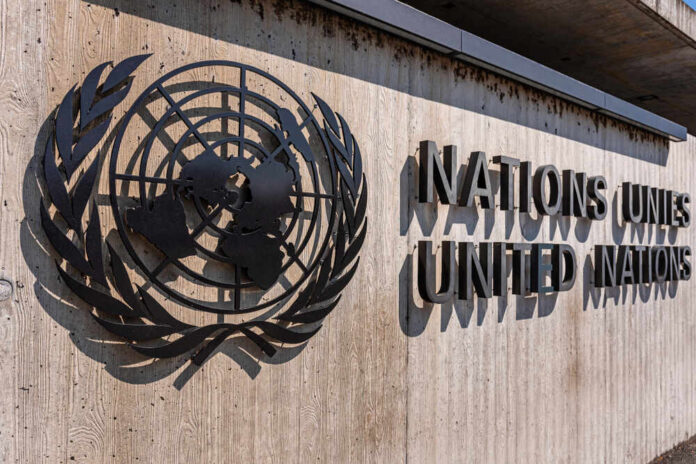
The recent declarations by U.N. Climate Chief Professor Jim Skea and U.N. Chief Antonio Guterres have reignited discussions about globalist agendas wrapped up in the green cloth of environmental concerns. Professor Skea’s call for world leaders to act as “ringmasters or ringmistresses” for the global green mission raises questions about the true motives behind these sweeping global directives.
Speaking to London’s Evening Standard, Skea painted a dramatic picture, emphasizing, “Climate change is happening now, perhaps it’s happening more quickly than was anticipated.” This, however, comes as no surprise given the U.N.’s history of fearmongering rhetoric. Not one to be outdone, Guterres declared that “the era of global warming has ended; the era of global boiling has arrived.” Such claims, critics argue, are overblown and, at times, appear to be more of a strategy to push globalist agendas than a genuine call for action.
NOW – UN chief claims "the era of global warming has ended, the era of global boiling has arrived."pic.twitter.com/BSxZSnJwp7
— Disclose.tv (@disclosetv) July 27, 2023
Is it truly about the environment, or is there a deeper play for power, control, and regulation over global economies and individual freedoms? While championed by some, movements like Just Stop Oil and Extinction Rebellion are seen by skeptics as mere pawns in a larger game that aims to centralize authority and limit national sovereignty.
Britain’s political landscape mirrors this divide. While Prime Minister Rishi Sunak cautiously treads the waters between economic growth and environmental commitments, his decisions to allow more North Sea oil and gas drilling sharply contrast with the sensationalist warnings from London Mayor Sadiq Khan. Sunak’s balanced approach reflects an understanding that responsible governance means not sacrificing a nation’s citizens’ immediate well-being and economic stability for unproven long-term theories.
REPORTER: "Are you prepared to declare a national emergency with respect to climate change?"
BIDEN: "We've already done that"
REPORTER: "So you've already declared that national emergency?
BIDEN: "You have a bug on you!" 🤡
pic.twitter.com/edH1POl1GS— Benny Johnson (@bennyjohnson) August 9, 2023
BIDEN: "We're preparing the military by trying to deal with the climate stuff"
— Benny Johnson (@bennyjohnson) August 9, 2023
Across the pond, the U.S. finds itself wrestling with similar issues. President Joe Biden, ever eager to appease the green lobby, cited rejoining the Paris Climate Accord as evidence of his commitment to combat climate change. Yet, the implications of his Grand Canyon national park designation and the subsequent ban on uranium mining could hamstring the U.S. energy sector, all in the name of environmentalism. Critics ask: Is it truly about the environment, or is it an attempt to curtail domestic energy production and make the U.S. more dependent on foreign sources?
Biden’s claim of signing the “largest climate bill” might appease some sections. Still, many see it as another cog in the machinery of globalist agendas, focusing more on regulation and control than genuine, pragmatic solutions.
The theatrical language from Guterres and Skea’s call to action, viewed through a skeptical lens, underscores an age-old debate: How do we balance genuine environmental concerns with the potential overreach of globalist agendas? The true challenge, skeptics believe, is ensuring that world leaders prioritize their nation’s immediate needs over global directives that may not serve their citizens’ best interests. In the ongoing drama of global politics, discernment, and independence must guide the way forward.



























